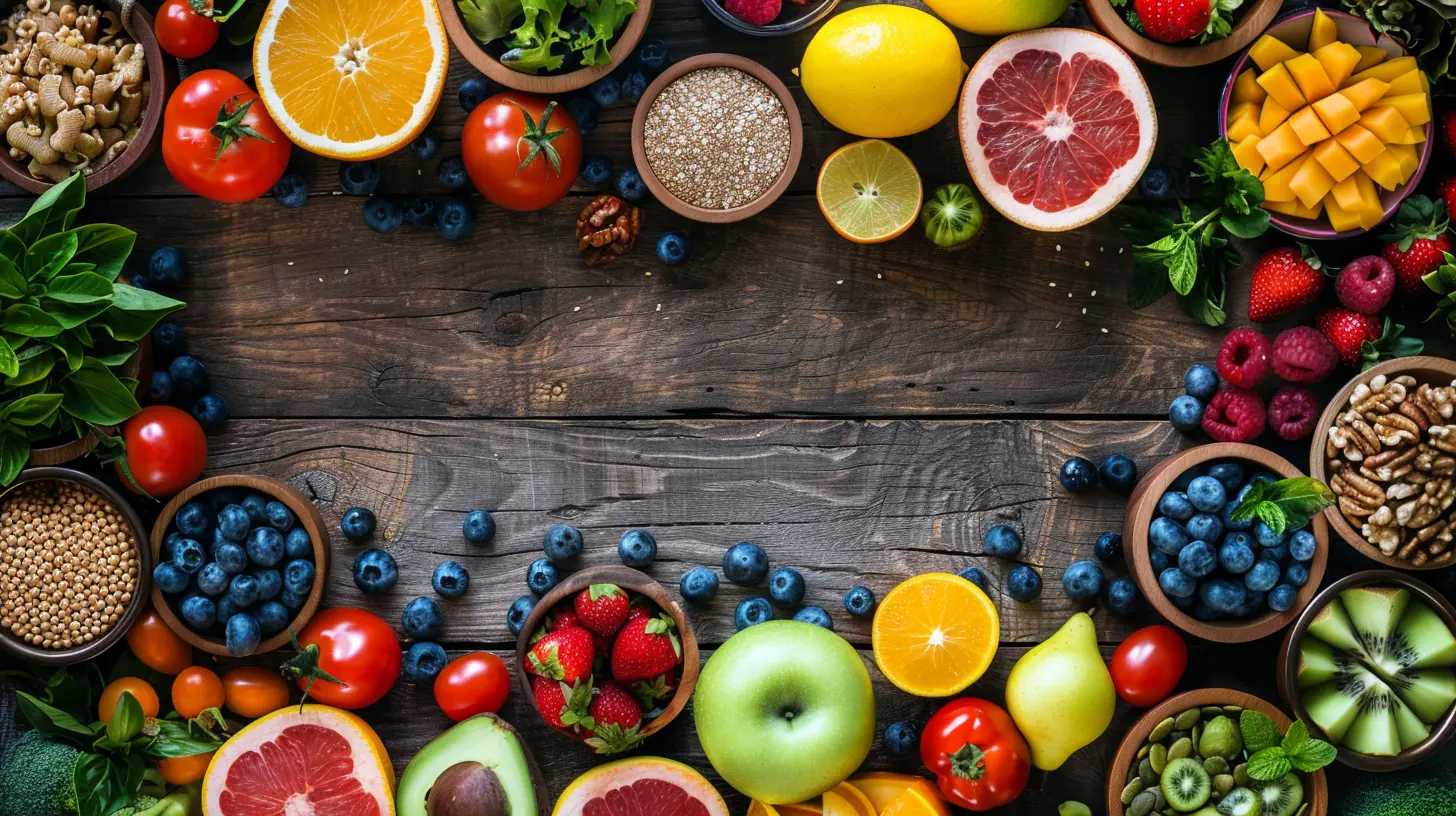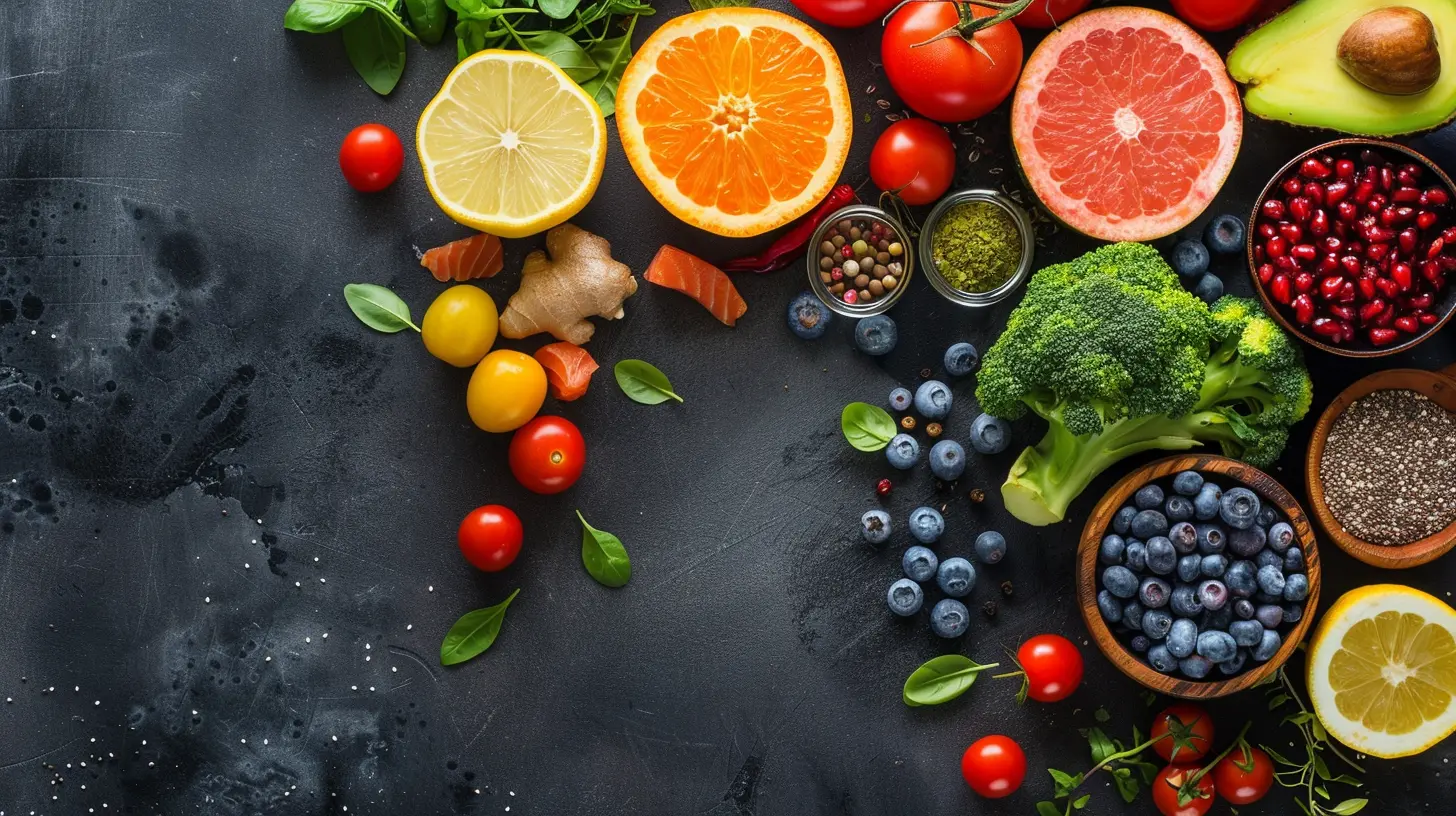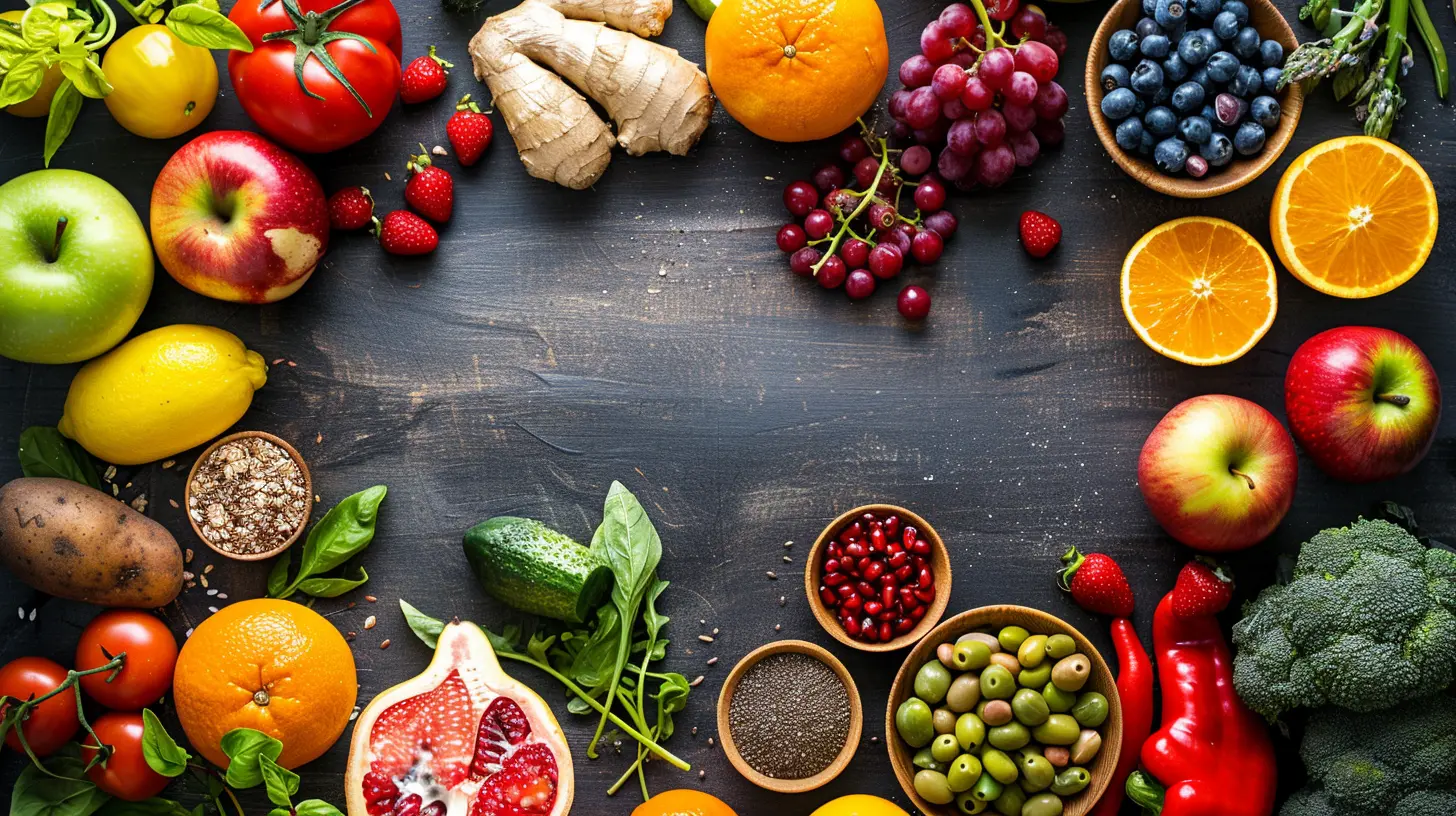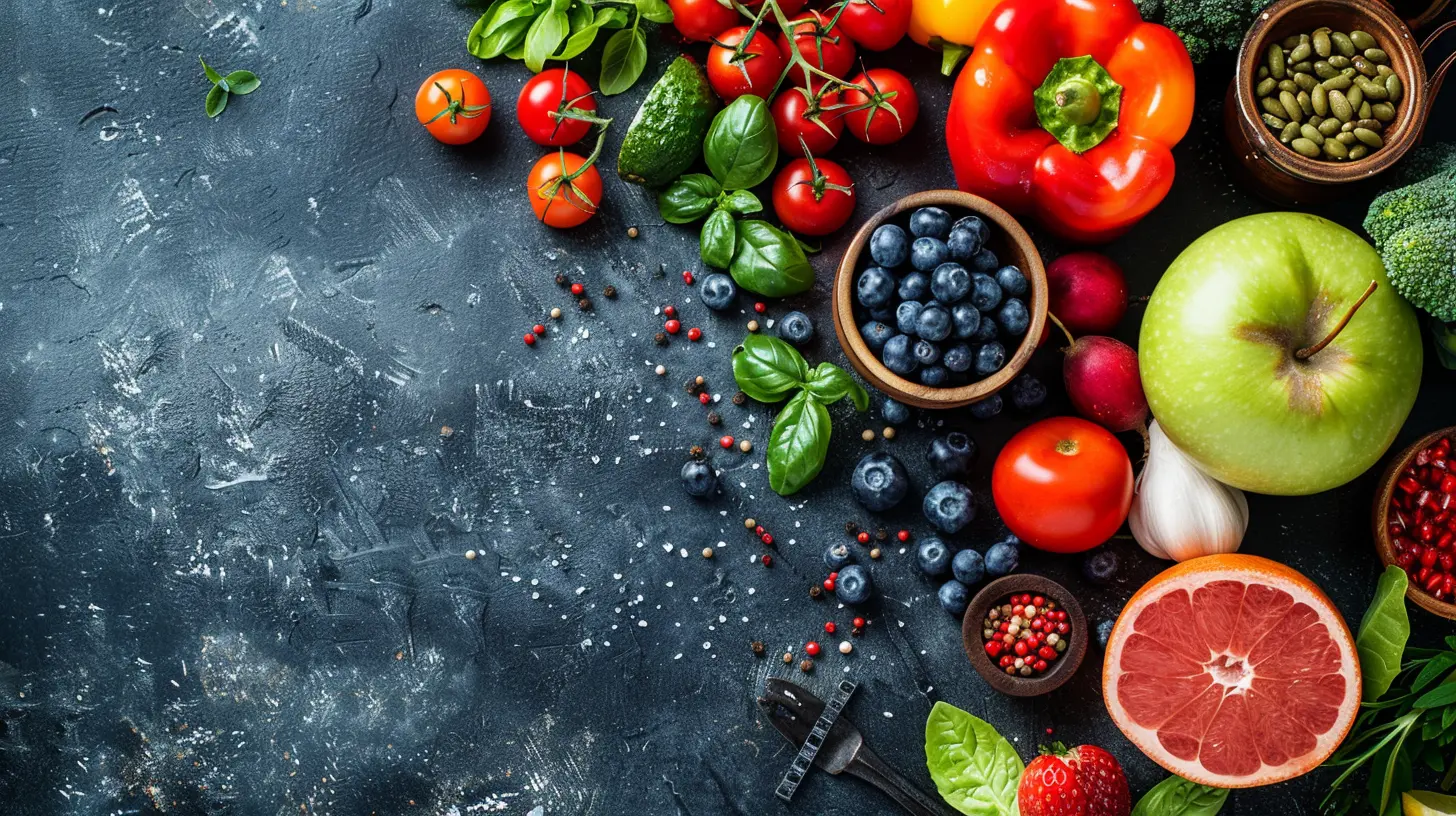Debunking Common Food Myths: What's Really Healthy?
5 August 2025
We live in a world where carb-demons lurk under dinner tables and fats are feared like Friday the 13th. Superfoods come and go like fashion trends, while sugar hides behind walls of marketing magic. Food myths have woven themselves into our everyday choices, and most of us believe at least one — without second-guessing it.
But guess what? Half of these health "facts" are just... fiction.
So let’s take a walk through the grocery store of truth. We’re peeling back the labels, tossing out the toxic advice, and finally answering that age-old question: what’s really healthy?

The Great Carbohydrate Conspiracy 🥖
Myth #1: "Carbs make you fat."
Raise your hand if you've heard this more times than your morning alarm. Carbs, the poor misunderstood macronutrient, have been demonized for years. But here’s the tea.Carbohydrates are our body’s main energy source. They're like gasoline for your internal engine. What matters more than “carbs = bad” is the kind of carbs we’re talking about.
Refined carbs — think white bread, pastries, sugary cereals — yeah, those can spike your blood sugar and leave you crashing by noon.
Complex carbs — like oats, quinoa, brown rice, and sweet potatoes — are packed with fiber, keep you full longer, and don’t mess with your blood sugar like a yo-yo.
So no, carbs don't make you fat. Overeating and not moving enough? That’s a different story.

Fat Isn't The F-Word Anymore 🥑
Myth #2: "Fat is bad for you."
Remember the '90s low-fat craze? Snack packs, fat-free cookies, and cardboard-tasting everything? It was a dark time.But here’s where it gets better. Not all fats are created equal. While trans fats and excessive saturated fats can increase heart disease risk, healthy fats are your best friends. They’re like the loyal sidekicks that help with hormone production, brain function, and even keeping your skin glowing.
Focus on these rockstar fats:
- Avocados
- Nuts & seeds
- Olive oil
- Fatty fish like salmon
The truth? Fat doesn’t make you fat — just like wearing sneakers doesn’t make you run marathons.

The Protein Obsession 🍗
Myth #3: "You need tons of protein to be healthy."
Protein is crucial — no doubt. It repairs tissue, boosts metabolism, and keeps you full. But the idea that more is always better? That’s where the myth creeps in.Most people already eat enough protein through their daily diets. Unless you’re lifting heavy or training for a triathlon, chances are you don’t need four protein shakes a day.
Balance is key. Too much protein, especially from processed sources, can strain your kidneys over time. Loading your plate with chicken, beef, and eggs without room for veggies or grains? That’s not peak health — that’s just imbalanced nutrition.

Sugar: The Sweet Saboteur 🍬
Myth #4: "Natural sugars are completely safe."
Ah, the sweet deception. Agave, honey, coconut sugar — they all wear disguise masks, whispering, “I’m healthy, trust me.”Don’t fall for it.
Yes, these are less refined than white sugar. Yes, they might contain trace minerals. But your body processes sugar almost the same way, whether it’s from a cane or a coconut.
Even fruit sugar can cause issues when eaten in excess — especially in juice form where fiber is missing in action.
Moral of the story? Sugar’s still sugar. Choose whole fruits over juices or syrups and keep all added sugars — even the "natural" ones — in check.
Gluten-Free Doesn't Mean Guilt-Free 🥖🚫
Myth #5: "Gluten-free foods are healthier."
This one’s a doozy. Gluten-free pasta, cookies, and pizza line every supermarket shelf — but here’s the kicker: unless you have celiac disease or a legit intolerance, there’s no health halo here.In fact, many gluten-free processed foods are higher in sugar, fat, and calories compared to their glutinous counterparts. Why? Because they’re trying desperately to replace the texture and taste that gluten provides.
So don’t get caught up in the gluten-free hype. A cookie is still a cookie. If your body handles gluten fine, whole-grain bread or pasta can actually be a healthy choice.
Eggs: The Comeback Kid 🥚
Myth #6: "Eggs raise cholesterol, so you should avoid them."
Poor eggs. Once labeled as cholesterol bombs, they were benched for years. But now? They’re making one heck of a comeback — and they’ve got science on their side.Yes, eggs contain cholesterol. But dietary cholesterol doesn’t necessarily raise your blood cholesterol. That’s mainly driven by saturated fat and genetics.
Eggs are a powerhouse of nutrients: protein, healthy fats, vitamins D and B12, and antioxidants like lutein. Unless your doctor advises otherwise, having an egg (or two) for breakfast won’t clog your arteries — it might just power your morning.
The Juice Cleanse Illusion 🍹
Myth #7: "Juice cleanses detox your body."
We’ve all seen it — influencers holding neon-green juices like they’re holy water, promising a detoxed body in 3 days flat.Reality check: your liver and kidneys are already detoxing pros. They don’t need a pricey juice cleanse to do their job.
Juice cleanses might help you shed a few pounds — but it's often water weight and muscle. Plus, without fiber, juices spike your blood sugar faster than you can say “celery.”
Want long-term health? Eat whole fruits, drink water, and let your organs do their thing.
Microwaves Will Not Mutate Your Food 🔥📦
Myth #8: "Microwaving food destroys all nutrients."
Nope. Not true.In fact, microwaving can preserve nutrients better than some other cooking methods. It uses less heat over a shorter period, keeping more heat-sensitive vitamins like vitamin C intact.
Steaming in the microwave? Solid technique. Just don’t nuke it into oblivion, and you’ll be good.
Frozen Fruits and Veggies: Not Nutritional No-Nos ❄️🥦
Myth #9: "Fresh produce is always healthier than frozen."
We tend to put fresh on a pedestal — but frozen produce has a secret superpower: it’s picked at peak ripeness and flash-frozen, locking in nutrients almost instantly.Meanwhile, “fresh” produce might travel thousands of miles and sit on shelves for days before landing in your kitchen. Translation? It could lose a chunk of its nutritional value in transit.
So don’t turn your nose up at frozen spinach or berries — sometimes, they might even have the upper hand.
All Calories Are NOT Created Equal 🔥🍕
Myth #10: "A calorie is a calorie."
Technically true... but practically misleading.Sure, 100 calories of soda and 100 calories of almonds are equal on a math test. But your body doesn’t treat them the same way. Almonds bring fiber, healthy fats, and satiety — soda brings sugar, a crash, and hunger an hour later.
So when you hear “just eat fewer calories,” remember: it’s not just about the number — it’s about the source.
Organic vs. Conventional: The Dirty Debate 🌿
Myth #11: "Organic means healthier."
Here’s where we’ve got to be nuanced.Organic foods are grown without synthetic pesticides, fertilizers, or GMOs — that’s great! But that doesn’t automatically mean they’re more nutritious.
An organic cookie is still a cookie. Organic doesn’t cancel out sugar, salt, or fat.
If you’re choosing between organic spinach and conventional chips? Go green. But don’t let the “organic” label lull you into a false sense of health.
Small Plates, Big Myths 🍽️
Myth #12: "Eating small, frequent meals speeds up metabolism."
This one sounds logical, right? Keep feeding your body and it’ll burn more calories.Wrong.
Studies show that total calorie intake matters more than how often you eat. Some people thrive on three solid meals, while others prefer five small ones. What’s best? Whatever keeps you satisfied and balanced.
Metabolism isn’t a bonfire that needs constant fueling — it’s more like a thermostat that adapts over time.
Wrapping It All Up 🍃
At the end of the day, food is personal. Our bodies are complex, unique, ever-changing. What works for one person may not work for another — and that’s okay.But we owe it to ourselves to challenge the myths, question the trends, and stop giving fear a seat at the dinner table.
So next time someone tells you carbs are evil or eggs will kill you, smile politely — and maybe hand them a side of facts.
Because the real secret to health isn’t in fads, labels, or magic berries.
It’s in balance. In listening. In loving your food and letting it love you back.
all images in this post were generated using AI tools
Category:
Healthy EatingAuthor:

Eileen Wood
Discussion
rate this article
1 comments
Olive Griffin
Truth hides where myths thrive.
August 28, 2025 at 2:26 PM

Eileen Wood
Thank you for your insight! It's essential to separate facts from myths to make informed health choices.


